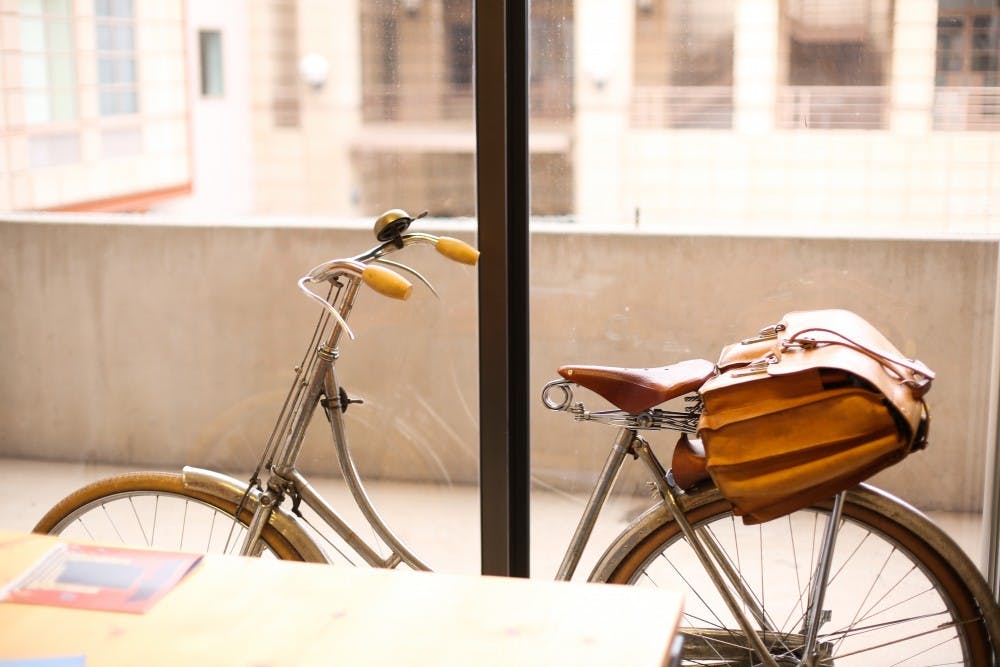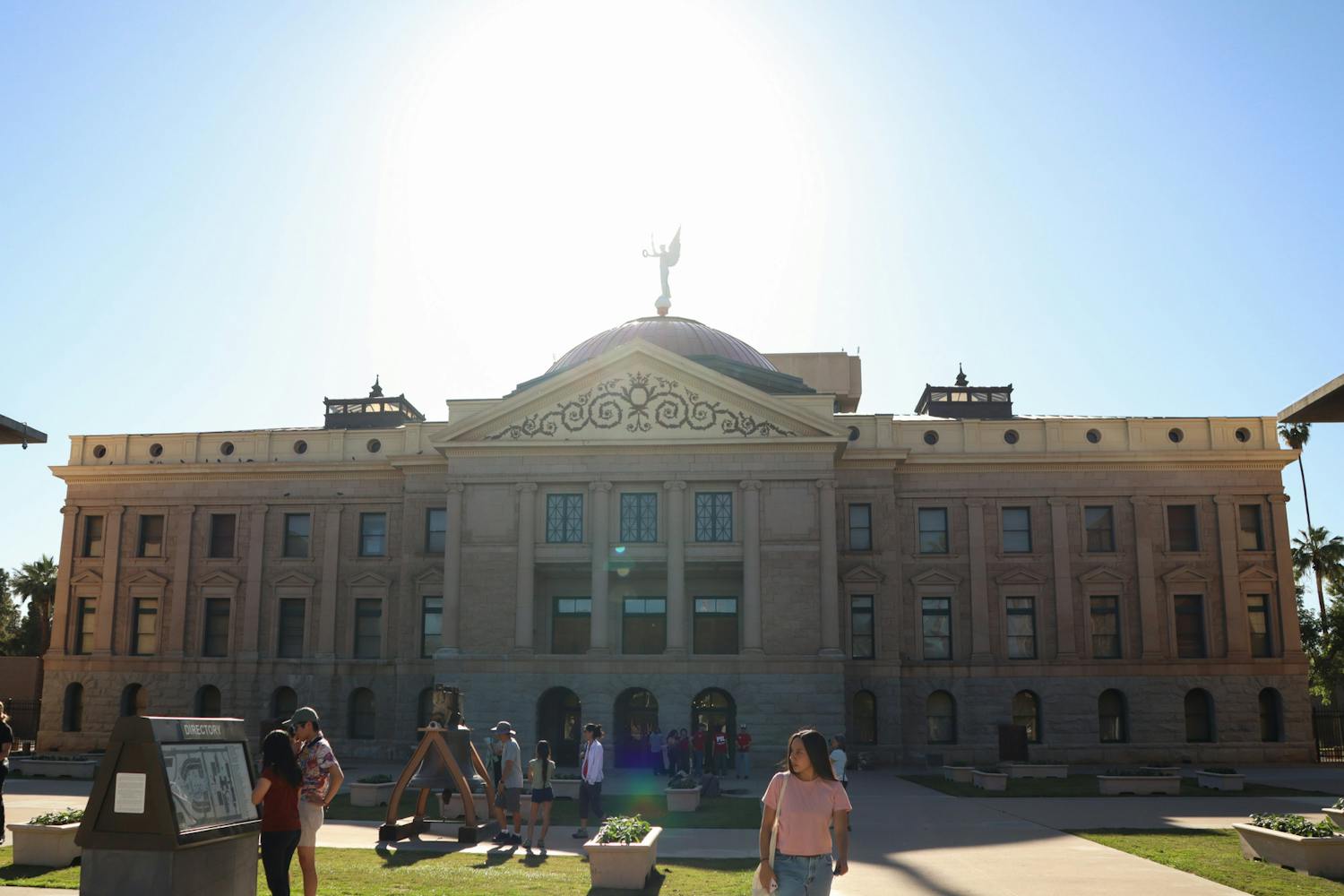I used to wake up each morning, dreading the day ahead of me. It was as if life was a bully, and I was its daily victim: constant stress to be someone I wasn’t, always broke, no time to do the things that made me happy because I was desperately trying to blend in, and I eventually lost sight of my life goals as I could only focus on the negativity that consumed me.
Except it wasn’t a bully that made me feel so terribly. It was something far worse. Worse because no one could save me. No one could save me, and no one could save themselves because they didn’t realize they were suffering. Like me, they were blinded by the societal pressure to fit in, or even one-up everyone else, through purchasing things.
According to the Worldwatch Institute, today’s society has a record-high consumption problem. America has one of the largest consumer cultures, with more being produced all the time. With more cars than licensed drivers, larger homes housing smaller families, soaring obesity rates, an average monthly credit card balance of $12,000, this culture is filled with mass consumerism.
Perhaps it’s because we’re taught from an early age that the goal is to be able to afford and own a TV, a Rolex watch, a BMW or anything else that exemplifies one’s wealth. Because one cannot experience happiness without the comfort of owning these items, right? Wrong. There’s an old saying that goes, “Money can’t buy happiness,” and it has never pertained better to a society.
Times are changing. A lifestyle dating back to the Ancient Greeks is finally reemerging through social media and the internet — a lifestyle of simplicity, otherwise known as minimalism. Minimalism is the more modern term, coined after the art movement of the 1960’s that viewed abstract art as excessive and overwhelming. The two types of minimalism share this ideal, but minimalists view nonessential items as abstract, excessive and overwhelming.
Ryan Nicodemus and Joshua Fields Millburn created "The Minimalists" blog and travel the United States to educate Americans about their transitions into the minimalist lifestyle, defining minimalism as “a tool to rid yourself of life’s excess in favor of focusing on what’s important—so you can find happiness, fulfillment and freedom.”
The Minimalists even gave a speech on TED Talks, where they talked about what it’s like to have a rich life. Not rich in wealth, but rich in purpose.
“Imagine a life with more: more time, more meaningful relationships, more growth and contribution; a life of passion unencumbered by the trappings of the chaotic world around you," says Nicodemus on TED Talks. "Well what you’re imagining is an intentional life. It’s not a perfect life, it’s not even an easy life, but a simple one. What you’re imagining is a rich life."
Millburn was the first of the two to discover minimalism through a man by the name of Colin Wright, someone who only stumbled upon minimalism after he changed his career path.
Wright is a travel blogger, but very unique in that he moves to a new country every four months, allowing his followers to choose his destinations. Needless to say, moving is a hassle not to mention moving from country to country every few months. For Wright, moving is as simple as going on vacation because all his belongings fit into one single carry-on.
“(Minimalism) is something that sounds nice philosophically, but in practice, it's remarkable how many things change and how wonderful you feel being able to throw yourself completely into whatever it is that's meaningful to you at the moment,” Wright says.
As someone who used to spend $200 or more in a single month just on clothes, I understand that fashion is a passion, just like anything else. Although I don’t even spend $200 on clothes in one year now, I know it’s important to a lot of people. Wright also understands the need to consume and advises people to consume intentionally.
“I don't think consumption is inherently wrong, but compulsory consumption — the idea that we need to buy things to be fulfilled, to be good people — is typically harmful. Money can only buy happiness if you spend it on the right things,” says Wright.
It comes down to this: It’s not about how much you buy, but what you buy.
“Maybe don't buy the big screen TV. Spend that money where's it's best spent, not on stuff you're told you need, or feel compelled to purchase. For me, travel is vital, and more stuff just gets in the way of that, so I spend more money on experiences and plane tickets than furniture or gadgets. For other people, that focus will be different, and that's completely legitimate,” Wright says.
Arizona State University School of Design professor Andrew Weed, owner of the “simple yet complex” Weed Furniture, advises people to spend more money on good quality material, rather than be cheap and buy something knowing it won’t last a year.
“I get fascinated with some things, because I could tell there was a lot of thought and care that went into them, and I know they will last much longer than me. I don’t think that makes me minimalistic, I don’t think, because it has to do with thought,” Weed says, pointing out his leather bag that he plans to pass on to his great grandchildren.
Weed also mentions that attachment is a dangerous thing, something that should be avoided. Weed’s bike, beautifully crafted out of silver metal and brown leather, was stolen. He only let it bother him for the day then realized it was a bike and could be remade.
Saving money is only one of the many benefits of minimalism. Others include creating more time, a decrease in stress, personal growth, being at peace with the present, charitable work and giving back, narrowing down life goals, obtaining an honest freedom and much more. As a college student, all these benefits can change the end results of a college education for the better: less debt, less stress, more time and success are just a few. Wright believes focus is the number one benefit of minimalism.
“You might say that focus is the main benefit of minimalism: focus on the important things, activities and people in your life. More of everything to spend on those most vital components,” Wright says.
So how does one become a minimalist? A process that can be short and simple, or long and difficult, even emotional. First, one must address that they wish to live a simpler life and reap all these benefits. Then, there’s a decluttering process to help achieve those benefits; starting in a room, closet or drawer, go through all its belongings and determine whether it’s an essential component to your life.
A series of questions might make the decision process less overwhelming: Have I used it more than once in the last month? Would I take it on a three month trip to a foreign country? Can something else I own take its place?
Or maybe set the items into three piles: trash, give away and keep. If you hesitate, you don’t need it. Cut down shoes, pots and pans; throw away old letters, papers and coupons; think about how much use the item would get with someone who needed it. Believe me when I say you feel physically lighter once all the clutter is gone.
Then, to take it a step further, there’s the 100 Item Challenge or the 30-Day Minimalism Game, from TH (The Minimalists) which will deprive you of TV, social medias and even suggest you quit your job. These tasks may all seem impossible, hard or just unreasonable, but the benefits are so rewarding.
“I stopped using Instagram a few months ago, and have since noticed how much time I spent on it comparing my life to other people’s. It became like Facebook, something you do when your bored,” says freshman Jessica Valentine, who also had her Xbox stolen, opening up her free time even more.
After a year of decluttering, simplifying and maximizing my life, I have only ever experienced one drawback — it’s addicting. Getting ready in the morning takes half an hour at most; I have the money to make spontaneous trips; I have the time to pick up old and new hobbies; and I have full control over my phone. There’s so little to lose, and so much to gain.




